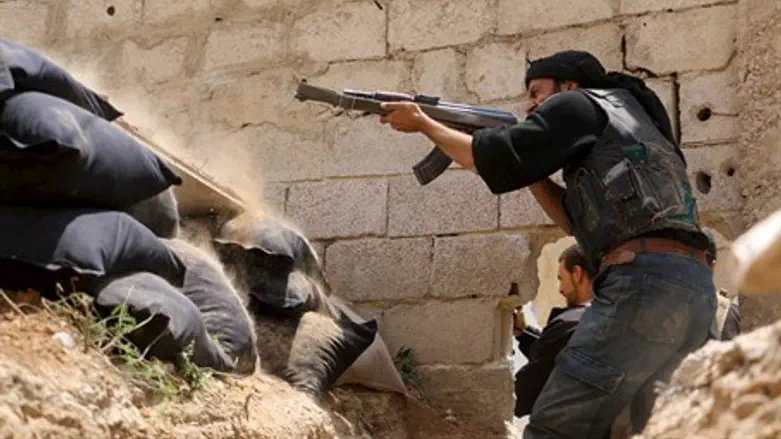
Pentagon chief Ashton Carter on Friday hit out at Russia for bombing US-backed forces in southern Syria who he said were fighting ISIS, calling their actions "problematic."
"This was an attack on forces, first of all, that were fighting ISIL. Obviously that's the first thing that's problematic about this Russian conduct," Carter told reporters, using an alternate acronym for ISIS.
Carter admitted that perhaps Russian forces made a mistake when they conducted a series of air strikes on Thursday near al-Tanaf -- but said in that case, it highlighted poor intelligence on their side.
"If it was their intention, it is the opposite of what they said they were going to do," he said. "If not, it says something about the quality of information upon which they make their strikes."
On Thursday, a senior US defense official said that Russian aircraft had not been active in the al-Tanaf area on Syria's border with Iraq "for some time" and that there were "no Syrian regime or Russian ground forces in the vicinity."
The Britain-based Syrian Observatory for Human Rights said two US-backed fighters -- one Syrian and one Iraqi -- were killed in the strikes.
The Syrian belonged a group of fighters from the New Syrian Army, trained by the British and the Americans in a coalition camp in Jordan, while the Iraqi was a tribal fighter, Observatory chief Rami Abdel Rahman said.
Russia's defense ministry said late Thursday that it had not carried out any strikes targeting opposition forces included in the ceasefire, without mentioning Al-Tanaf.
The United States and Russia have put in place a channel of communication so that they can ensure that their separate air campaigns in Syria do not result in any unsafe incidents.
But Carter said the communications link "was not professionally used."
"We are trying to clarify the facts and use that channel with the Russians to understand what went on," he said.
The US military launched a $500 million program in early 2015 to train entire units of "moderate" Syrians to fight Islamic State jihadists.
But the program drew heavy fire last fall after admitting the efforts had floundered, with numbers of trainees falling massively short of the planned 5,000.
One group even handed over ammunition and other gear to a local Al-Qaeda affiliate known as the Al-Nusra Front.
Since then, the Pentagon's new strategy is to work with just a handful of members from each fighting group, instead of an entire unit.
Syria's five-year war has killed more than 280,000 people and displaced millions.
AFP contributed to this report